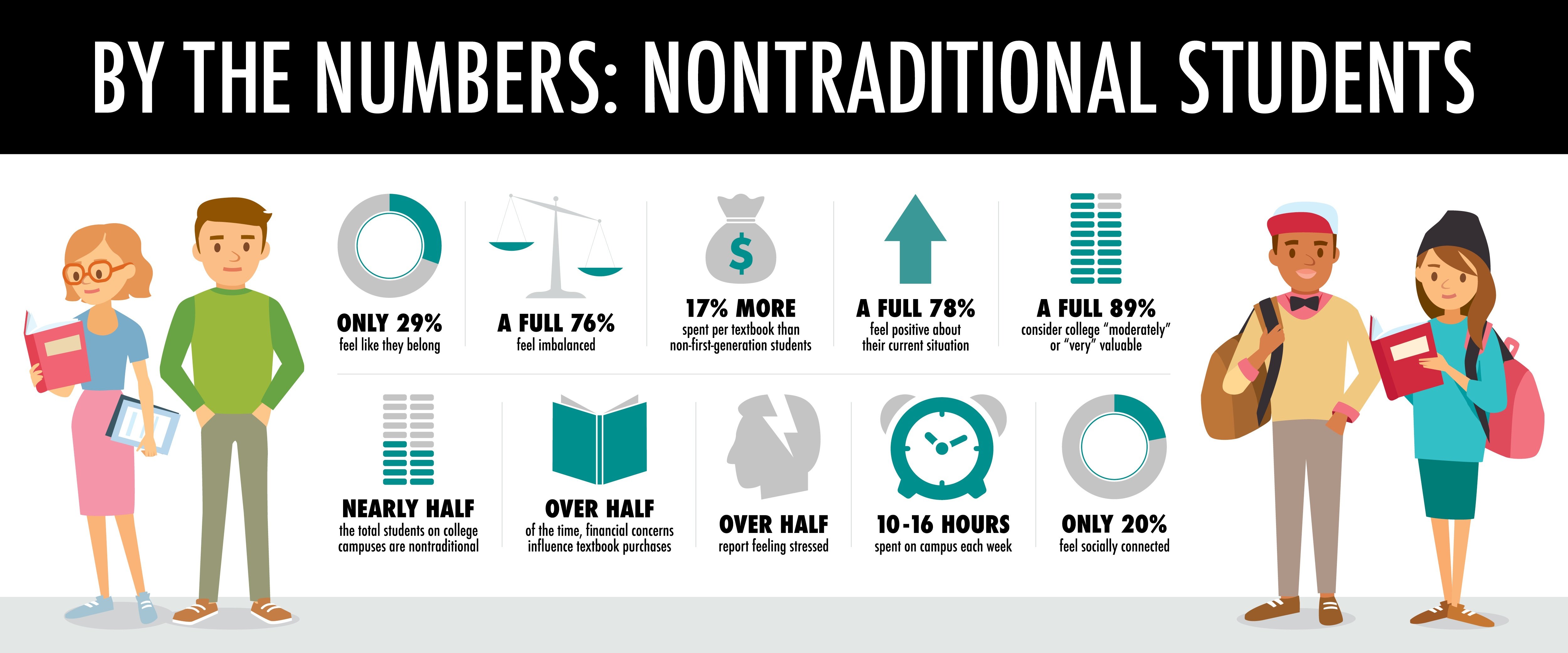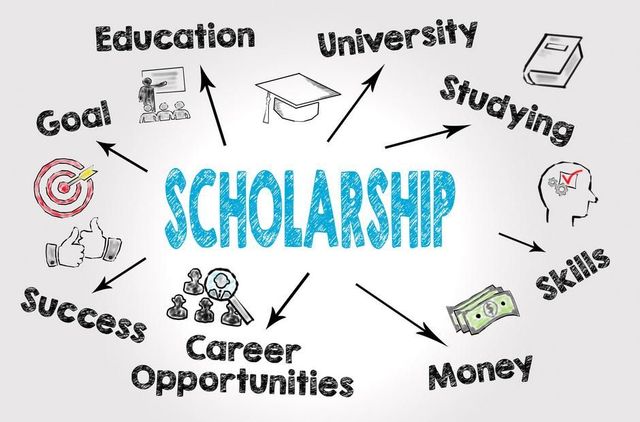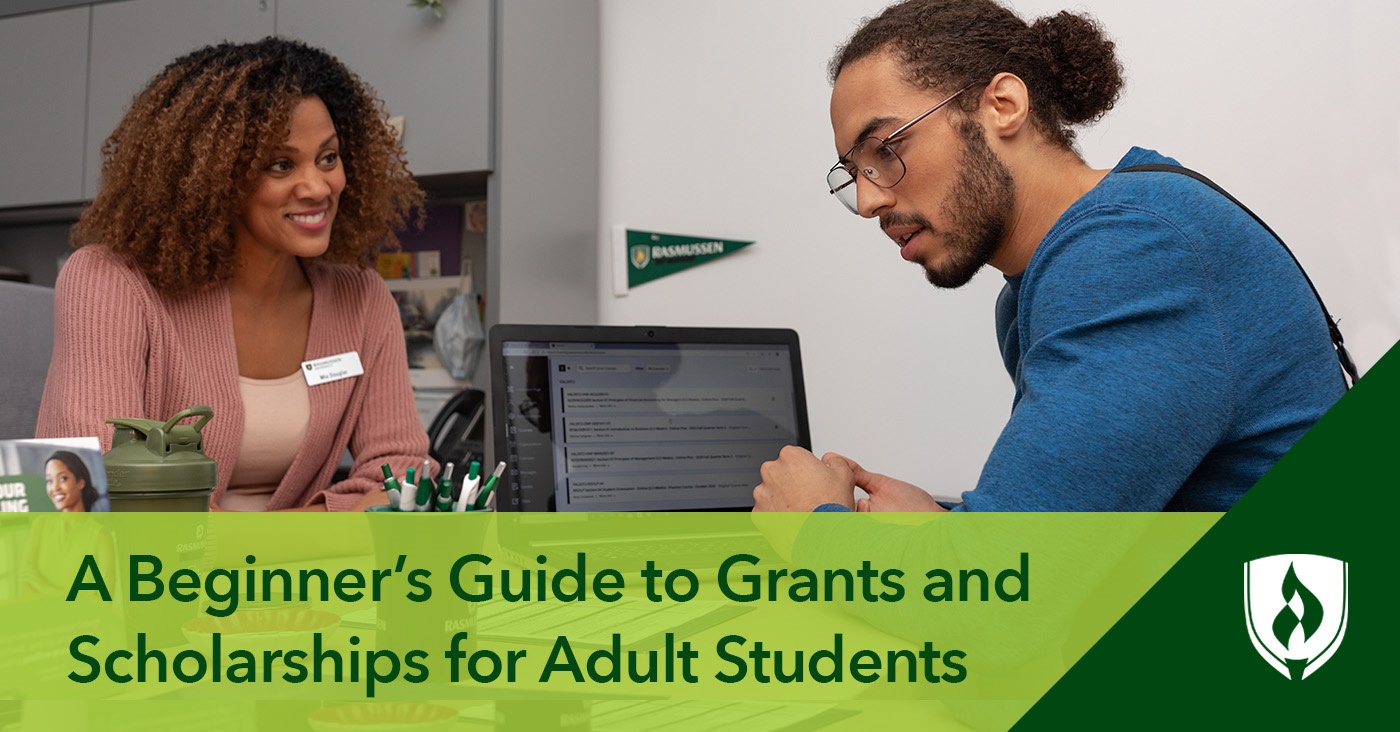Opportunities for Non-Traditional Students to Get Scholarships

Higher education is increasingly vital, yet its rising costs present significant hurdles, especially for non-traditional students. These individuals, often juggling work, family, and financial constraints, may feel scholarships are out of reach. However, numerous opportunities exist specifically designed to support their academic aspirations. This article delves into the scholarship landscape for non-traditional students, highlighting diverse programs catering to unique circumstances. From scholarships for single parents to those supporting career changers and veterans, we'll explore avenues to access financial aid and unlock educational potential, empowering non-traditional learners to achieve their academic goals.
Opportunities for Non-Traditional Students to Get Scholarships
For non-traditional students, the pursuit of higher education often comes with unique challenges, particularly financial ones. However, numerous scholarship opportunities are specifically designed to support these students, recognizing their diverse backgrounds and experiences. These scholarships acknowledge the life experiences, work history, and often family responsibilities that traditional students may not have. Identifying and applying for these targeted scholarships can significantly ease the financial burden of returning to school. The availability of these resources highlights the growing recognition of the valuable perspectives and dedication that non-traditional students bring to the academic environment.
Define "Non-Traditional" Student
A "non-traditional" student is generally defined as someone who did not enroll in college directly after high school, or who has experienced significant interruptions in their education. This often includes students who are older than the typical college age, have dependents, are employed full-time, are financially independent, or are veterans. Understanding this definition is crucial because many scholarships have eligibility requirements based on these specific characteristics, so determining if you meet these criteria is the first step in identifying relevant funding opportunities.
Scholarships Specifically for Older Students
Several scholarships are exclusively for older students returning to education. The Executive Women International Adult Students in Scholastic Transition (ASIST) Scholarship Program is one such example, offering financial assistance to adult students facing economic challenges. Similarly, many local community organizations and foundations provide scholarships to older students within their region. These scholarships often recognize the unique challenges and commitments that older students face, such as balancing work, family, and studies, offering support tailored to their specific circumstances.
Scholarships Based on Life Experience
Life experiences can be a significant asset when applying for scholarships. Many organizations offer scholarships that recognize and reward students who have overcome adversity or have unique backgrounds. For example, scholarships may be available for students who have served in the military, raised families, or experienced significant personal hardships. These scholarships often require applicants to demonstrate how their life experiences have shaped their goals and prepared them for academic success.
Scholarships for Parents and Caregivers
Being a parent or caregiver while pursuing higher education presents substantial financial challenges. Several scholarships specifically target students with dependents, acknowledging the added responsibilities they carry. These scholarships recognize the financial strain of balancing childcare, household expenses, and tuition, aiming to ease the burden and enable student parents to focus on their studies. Researching and applying for these scholarships can significantly alleviate the financial pressure on student parents, allowing them to prioritize their education while supporting their families.
Scholarships for Part-Time Students
Many non-traditional students attend college part-time due to work or family commitments. While many scholarships are geared towards full-time students, there are also options available for those enrolled on a part-time basis. Some organizations understand that not everyone can commit to a full course load and offer financial aid accordingly. These scholarships can be crucial for part-time students who may not qualify for traditional financial aid packages, providing vital support as they balance their education with other responsibilities.
| Scholarship Name | Eligibility Criteria | Award Amount (Approximate) | Where to Find More Information |
|---|---|---|---|
| Executive Women International ASIST Scholarship | Adult students in transition facing economic challenges. | Varies, typically $2,000 - $10,000 | EWI International Website |
| Patsy Takemoto Mink Education Foundation Scholarship | Low-income women with children pursuing education. | Up to $5,000 | Patsy T. Mink Foundation Website |
| Jeannette Rankin Women's Scholarship Fund | Women 35 and older pursuing technical or vocational education. | $2,000 | Jeannette Rankin Foundation Website |
| American Legion Auxiliary Non-Traditional Student Scholarship | Auxiliary members and their families pursuing higher education. | Varies | American Legion Auxiliary Website |
| Return2College Scholarship | US citizens, ages 17 and over, planning to enroll within the next 12 months. | $1,000 | Return2College Website |
What qualifies as a nontraditional student?

Age and Enrollment Delay
- Age is a significant factor. Many nontraditional students are older than the typical college age range, often in their late twenties or older. This age difference brings a wealth of life experience and perspectives to the classroom.
- Delayed enrollment after high school is another key characteristic. Instead of immediately attending college, nontraditional students may have worked, served in the military, raised a family, or pursued other life goals.
- Their decision to return to education may be driven by various factors, such as career advancement, personal fulfillment, or a desire to change fields.
Part-Time Attendance and Employment
- Many nontraditional students attend college part-time due to various responsibilities outside of academics. This can impact the pace of their studies and the time it takes to complete a degree.
- Full-time employment is often a necessity for nontraditional students who need to support themselves and their families. Balancing work and school can be challenging, requiring strong time management skills.
- The financial pressures associated with working and studying often necessitate careful budgeting and financial aid planning.
Family Responsibilities and Dependents
- Having dependents, such as children or elderly parents, is a common characteristic of nontraditional students. Balancing family responsibilities with academic demands can be incredibly challenging.
- Finding adequate childcare and support systems is often a critical concern for student parents. Many colleges offer resources to assist student parents.
- Their academic choices might be influenced by the need to be near their families., affecting program selection and even the college that they want to go to.
Financial Independence
- Nontraditional students are usually financially independent from their parents or guardians. This means they are responsible for funding their own education and living expenses.
- Financial aid and scholarships become vital resources for nontraditional students to afford tuition, fees, and other educational costs. Many scholarships are actually reserved for non-traditional students.
- Debt management and financial planning are essential skills for navigating the financial challenges of higher education while maintaining independence.
Diverse Educational Backgrounds
- Nontraditional students often come from a variety of educational backgrounds, including those who have earned a GED, transferred from community colleges, or have gaps in their formal education.
- They may require additional support services, such as tutoring or academic advising, to succeed in their studies.
- Their experiences can enrich the classroom environment, bringing diverse perspectives and real-world insights to discussions.
What is the $1,500 that's so awkward scholarship?
What is the Core Idea Behind the Scholarship?
The core idea revolves around acknowledging that everyone has awkward moments and that these moments can be a source of growth and even humor. It's not about having a perfect life, but about showing that you can learn from your embarrassing situations. The scholarship invites applicants to write a short essay about a time they experienced something awkward. The intention is to encourage students to not take themselves too seriously and to demonstrate a sense of self-awareness. Here are some key elements:
- Sharing personal anecdotes of awkward experiences.
- Reflecting on what they learned from the experience.
- Demonstrating self-awareness and humor.
What are the Eligibility Requirements?
The eligibility requirements are generally straightforward, making it accessible to a wide range of students. Typically, applicants must be at least 17 years old, be legal residents of the U.S., and be currently enrolled (or planning to enroll) in a post-secondary educational institution within the next year. It is crucial to carefully review the specific requirements on the Unigo website, as they may change from year to year. Here's a checklist:
- Must be at least 17 years of age.
- Must be a legal resident of the U.S.
- Must be enrolled or planning to enroll in a post-secondary institution.
What is the Application Process Like?
The application process is relatively simple. Applicants are typically required to write a short essay (usually 250 words or less) detailing their most awkward moment. The key is to be genuine, humorous, and reflective. The essay should paint a vivid picture of the situation and demonstrate how the applicant handled it. The application is submitted online through the Unigo platform. Considerations during the process include:
- Writing a concise and engaging essay.
- Focusing on the storytelling aspect.
- Highlighting the lessons learned.
How is the Winning Essay Selected?
The winning essay is selected based on its originality, humor, and the applicant's ability to convey the awkward situation in a relatable and engaging way. Judges are looking for essays that are well-written, demonstrate self-awareness, and provide a glimpse into the applicant's personality. The selection process also considers the overall quality of the writing and the applicant's ability to articulate their thoughts clearly. Criteria for selection typically includes:
- Originality and creativity of the story.
- Humor and relatability of the experience.
- Writing quality and clarity.
What are Some Tips for Writing a Successful Essay?
To write a successful essay, it's important to choose an awkward moment that is both memorable and relatable. Focus on the details to create a vivid and engaging story. Be honest and genuine in your writing, and don't be afraid to inject humor. Proofread your essay carefully to ensure it is free of errors. Most important key points:
- Choose a memorable and relatable awkward moment.
- Be honest and genuine in your writing.
- Proofread your essay carefully for errors.
How do I find scholarship opportunities?

Start with Online Scholarship Databases
Online scholarship databases are a great starting point. They centralize information from various sources, allowing you to filter scholarships based on your specific criteria. When searching, use keywords related to your major, ethnicity, location, and any unique characteristics you possess. Make a list of Scholarships for your interest.
- Fastweb: A popular database with a wide range of scholarships.
- Scholarships.com: Offers a comprehensive search tool and scholarship directory.
- Sallie Mae Scholarship Search: Provides access to over 5 million scholarships.
Explore University and College Resources
Your university or college's financial aid office is an invaluable resource. They often have lists of scholarships specifically for their students. These may include scholarships from alumni, local businesses, or organizations affiliated with the institution. Talk to your department advisors about possible scholarships. This is a direct and tailored approach to scholarship hunting.
- Check the financial aid website: Look for dedicated scholarship pages.
- Visit the financial aid office in person: Schedule an appointment to discuss your options.
- Contact your academic advisor: They may know of scholarships related to your field of study.
Tap into Professional Organizations and Associations
Many professional organizations and associations offer scholarships to students pursuing careers in their respective fields. These scholarships often provide significant funding and can enhance your resume. Research organizations related to your academic major or career interests.
- Search for industry-specific associations: For example, the American Society of Civil Engineers for civil engineering students.
- Look for scholarships specifically for students: Many organizations have dedicated scholarship programs.
- Attend conferences and networking events: These events can provide opportunities to learn about scholarships and meet representatives from these organizations.
Don't Overlook Local Community Scholarships
Local organizations, such as community foundations, rotary clubs, and chambers of commerce, often offer scholarships to students in their area. These scholarships may have less competition than national awards. Contact people that may have connections in these orginizations to get you closer to the scholarship oportunity.
- Research local community foundations: These foundations often support scholarships for local students.
- Contact local civic organizations: Rotary clubs, Lions clubs, and other civic organizations often offer scholarships.
- Check with your high school guidance counselor: They may have information about local scholarships.
Pay Attention to Deadlines and Application Requirements
Once you've identified potential scholarship opportunities, carefully review the eligibility criteria, application requirements, and deadlines. Pay very close attention to the deadline and give yourself plenty of time to apply. Be sure that you meet the minimum requirements needed. Missing any requirements may impact your chances of acceptance.
- Create a spreadsheet to track deadlines: This will help you stay organized and avoid missing important deadlines.
- Gather all required documents: Transcripts, letters of recommendation, essays, and other supporting materials.
- Proofread your application carefully: Ensure that your essay is well-written and free of errors.
Can older students get scholarships?

Yes, older students absolutely can get scholarships. Many scholarship programs are not limited by age and are open to students of all ages pursuing higher education. While some scholarships are specifically targeted at younger, traditional students, a significant number cater to non-traditional students, including those who are older, returning to school after a break, or pursuing a career change. Older students often have life experience and specific goals that make them strong candidates for scholarships.
Scholarships Specifically for Non-Traditional Students
Many scholarship organizations recognize the unique challenges and circumstances faced by older students and offer funding specifically tailored to their needs.
- These scholarships often consider factors such as prior work experience. Life skills gained outside of academia are often emphasized.
- They may also consider family responsibilities. Balancing education with family commitments is frequently taken into account.
- They may also consider financial hardship, as older students might have accrued debts or have limited financial resources. Overcoming financial barriers to education is a common theme.
Scholarships Based on Field of Study
Numerous scholarships are awarded based on the student's chosen field of study, regardless of age.
- If an older student is pursuing a degree in a high-demand field like healthcare or technology, they may be eligible for scholarships that support students in those areas. High-demand fields often have ample funding opportunities.
- These scholarships are designed to incentivize individuals to enter those professions. Incentivizing specific professions creates opportunities for mature students.
- The applicant's background is less important than the field's potential benefits. Focus on skills and career trajectory can bypass age concerns.
Scholarships Based on Financial Need
Many scholarships and grants are need-based, meaning they are awarded to students who demonstrate financial hardship, regardless of their age.
- These scholarships often require applicants to submit financial information, such as tax returns and income statements. Provide accurate financial documentation to prove need.
- Need-based scholarships aim to make education more accessible to students from disadvantaged backgrounds. Expanding access to education is the goal.
- Older students who have limited income or significant debt may be eligible for these types of awards. Debt and low income qualify as a high need.
Scholarships from Employers or Unions
Some employers and labor unions offer scholarships to their employees or members and their families, which can be a valuable resource for older students who are employed or belong to a union.
- These scholarships may be specific to certain industries or professions. Industry-specific funding is common through these channels.
- Union or employer sponsorships of education also exist for family members. Extending education opportunities to families is a bonus.
- These scholarships can help older students pursue further education without incurring significant debt. Reduced debt load creates peace of mind while studying.
Scholarships for Specific Demographics or Backgrounds
Scholarships are often available for students who belong to specific demographic groups, such as women, minorities, or veterans.
- If an older student identifies with one of these groups, they may be eligible for scholarships that are specifically targeted at those populations. Diversity and inclusion are key in awarding these scholarships.
- Veterans who are returning to school to pursue further education often have access to dedicated scholarship and grant programs. Supporting veterans' education is an important initiative.
- Women returning to complete their studies are often eligible for scholarships. Promoting gender equity in higher education is an important element of many scholarships.
Frequently asked questions
Are there scholarships specifically for non-traditional students?
Yes, there are many scholarships available specifically for non-traditional students. These scholarships often consider factors like age, time since high school graduation, family responsibilities, and career changes, recognizing the unique circumstances of students who may not fit the traditional college student profile. Websites like Sallie Mae and niche.com list several such opportunities.
What are some common eligibility requirements for these scholarships?
Eligibility requirements can vary widely, but some common factors include age (typically over 25), having a GED instead of a high school diploma, being a single parent, having dependents, enrolling part-time, or returning to school after a significant break. It is crucial to carefully review the specific requirements of each scholarship to determine eligibility and avoid wasting time on applications for which you don't qualify.
Where can non-traditional students find information about scholarships?
Non-traditional students can find scholarship information through a variety of resources. These include college financial aid offices, online scholarship databases like Fastweb and Scholarship America, professional organizations related to their field of study, community organizations, and even local libraries. Networking with other non-traditional students can also provide valuable leads and insights.
What are some tips for non-traditional students to improve their scholarship applications?
To improve their scholarship applications, non-traditional students should highlight their unique experiences and skills, such as work experience, life skills, and community involvement. They should also emphasize their motivation and commitment to education, explaining why they are returning to school and how the scholarship will help them achieve their goals. Finally, thoroughly proofread and edit all application materials to ensure clarity and professionalism.
